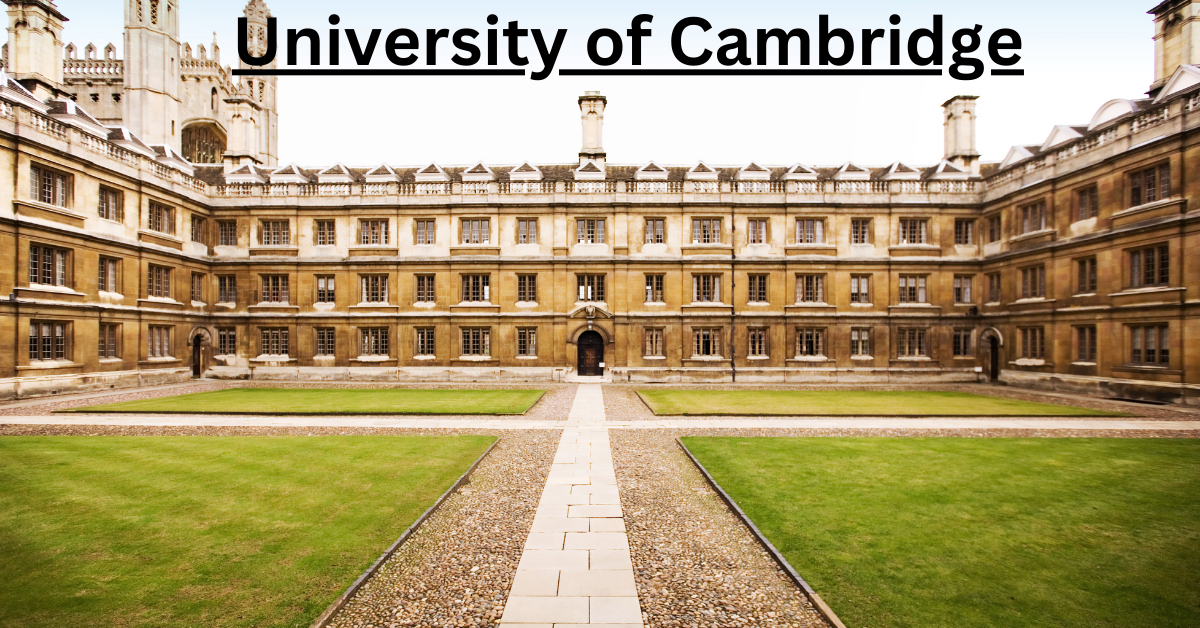Cambridge University, one of the oldest and most prestigious universities in the world, holds a storied legacy of academic excellence, groundbreaking research, and influential alumni. This detailed guide offers an in-depth exploration of Cambridge University, covering its history, academic structure, notable achievements, and cultural impact.

Introduction to Cambridge University
Cambridge University, located in the city of Cambridge, England, is renowned for its rich history dating back to 1209. It is a collegiate research university comprising numerous autonomous colleges and academic departments. The university’s commitment to scholarship, innovation, and intellectual rigor has cemented its global reputation as a leader in education and research.
History of Cambridge University
Cambridge University’s origins can be traced to scholars who fled Oxford during a dispute with townspeople in 1209. The establishment of Peterhouse in 1284 marked the beginning of Cambridge’s collegiate system, which later expanded with the founding of additional colleges. Over the centuries, Cambridge has been a center of intellectual ferment, producing influential thinkers, scientists, and writers who have shaped the course of human knowledge.
Academic Structure
- Collegiate System: Cambridge University is composed of 31 autonomous colleges, each with its own governance structure, accommodation, and facilities. Colleges provide accommodation, pastoral care, and academic support to students.
- Academic Departments: The university is organized into six Schools, encompassing a wide range of academic disciplines:
- Arts and Humanities
- Biological Sciences
- Clinical Medicine
- Humanities and Social Sciences
- Physical Sciences
- Technology
- Teaching and Research: Cambridge is renowned for its rigorous academic programs, emphasizing small-group teaching (supervisions) and research-led education. The university boasts numerous research centers and institutes focused on advancing knowledge across various fields.
Notable Achievements and Research
Cambridge University has been at the forefront of numerous scientific breakthroughs and scholarly achievements:
- Newton’s Laws of Motion: Developed by Sir Isaac Newton while he was a student at Trinity College, Cambridge.
- DNA Structure: Crick and Watson’s discovery of the double helix structure of DNA at the Cavendish Laboratory in 1953.
- Nobel Laureates: The university has produced over 100 Nobel Prize winners, including luminaries such as Ernest Rutherford, James Watson, and Stephen Hawking.
- Cutting-Edge Research: From astronomy to medicine, Cambridge continues to lead in pioneering research initiatives, tackling global challenges such as climate change, infectious diseases, and artificial intelligence.
Cultural and Extracurricular Activities
- Cambridge University Press: Founded in 1534, it is one of the oldest and largest academic publishers in the world.
- Cambridge University Libraries: The university’s library system houses extensive collections, including the Wren Library at Trinity College, renowned for its rare manuscripts and first editions.
- Student Societies and Clubs: Cambridge offers a vibrant extracurricular scene with numerous societies, clubs, and student-run organizations covering interests from sports and music to debate and drama.
Admission and Student Life
- Admission Process: Prospective students apply through UCAS (Universities and Colleges Admissions Service) and typically undergo rigorous academic assessments, interviews, and submission of personal statements.
- Student Support: Colleges provide pastoral care, academic guidance, and access to welfare services to support student well-being.
- Traditions and Events: Cambridge maintains a rich tradition of formal dining, May Balls, and events such as the Boat Race against Oxford University.
Alumni and Impact
Cambridge University counts among its alumni a diverse array of influential figures across various fields:
- Literature and Arts: Sylvia Plath, John Milton, and Emma Thompson.
- Science and Technology: Charles Darwin, Alan Turing, and Tim Berners-Lee.
- Politics and Public Service: Sir David Attenborough, Ban Ki-moon, and Sir Winston Churchill.
Conclusion
Cambridge University stands as a beacon of academic excellence and intellectual pursuit, fostering generations of scholars, innovators, and leaders who have shaped the world. With its distinguished history, commitment to research, and vibrant collegiate community, Cambridge continues to inspire and influence global education and scholarship.
For those aspiring to join this esteemed institution or simply eager to learn more about its illustrious past and ongoing contributions to knowledge, Cambridge University remains a compelling symbol of academic endeavor and achievement.